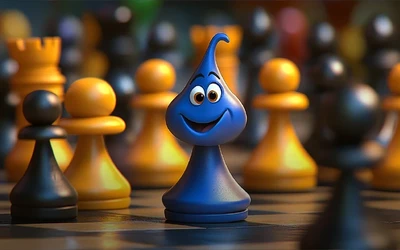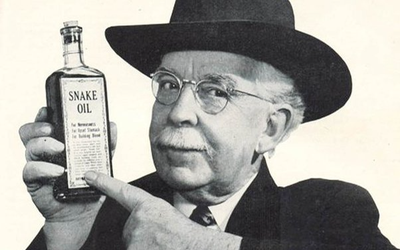
Credit: Image by @vladsargu via unsplash.com)
Chess Broke My Heart... Here’s Why I Still Can’t Quit
Chess has broken my heart more times than I can count. But the worst? Losing to a 12-year-old in a rated classical tournament. Over-the-board. A real, physical tournament. With spectators. With my peers watching. I was a titled player. He was barely tall enough to see the board. And yet... I got outplayed. I wanted to quit chess forever. Instead, I showed up for the next round.Chess Lies to You (And You Believe It)
You think you’re in control. You’ve studied openings, drilled endgames, and spent hours on puzzles. Then... you reach a winning position and collapse in one move.
I once forgot my preparation on move 5 in a tournament. Five. Moves. In.
The position was still equal, but my brain spiraled. How could I forget? What if I lose? I panicked and blundered a piece 10 moves later.
The truth? Chess isn’t just about moves. It’s about managing emotions.
Your Rating Isn’t Your Soul (But It Feels Like It)
We all pretend we don’t care about rating. But when you cross a milestone, you feel invincible. And when you drop below it, you question your entire identity.
A friend once told me: “At 2290, I felt unstoppable. At 2310, I felt like a fraud.”
Here’s what nobody tells you: Rating is just a reflection of the past, not a predictor of the future.
Try this: Play one classical tournament where you don’t obsess over your rating after every round. Just focus on the board, the moves, the fight. See how much freer you feel.
The Quiet Loneliness of a Million Players
A classical tournament is an emotional warzone. You sit in silence for five hours, pouring everything into a game, only to lose and walk away alone. No teammates. No timeouts. Just you, your score sheet, and your regrets.
I once played seven rounds in a classical tournament and barely spoke a word the entire weekend. Just tension, calculation, and quiet suffering.
So let’s fix that. After your next tournament game, talk to your opponent. Ask them about the game. Laugh about a blunder. Shake hands like you mean it.
Chess is brutal; but we don’t have to be.
How to Fall Back in Love with Chess
Play like a beginner. Try 1. h4 in a blitz game. Watch your opponent’s confusion.
Keep a “Blunder Journal.” Write down your worst mistakes. Mine includes blundering mate-in-one in a completely winning position.
Step away. Skip a tournament. Touch grass. Come back stronger.
Your Move: Be Honest
I’ll go first.
I lost to an 12-year-old in a rated classical tournament. Over-the-board. With people watching. It broke me. But when I came back, I played my first game in months and finally learned to laugh at my own blunders.
Now it’s your turn. Drop your story below:
What’s the hardest lesson chess ever taught you?
What’s the one moment that made you stay?
Let’s turn these heartbreaks into something unforgettable.
You may also like
 GM Avetik_ChessMood
GM Avetik_ChessMood10 Things to Give Up to Enjoy Chess Fully
Discover how embracing a lighter mindset can help you enjoy chess again and achieve better results. BenjiPortheault
BenjiPortheaultThe War on Attention
I’m done consuming chess content CM HGabor
CM HGaborHow titled players lie to you
This post is a word of warning for the average club player. As the chess world is becoming increasin… Zhrakos
ZhrakosThe Invisible Opponent: Battling the Mind in Chess and Life
In chess, the toughest opponent is not always sitting across the board. Sometimes, the hardest battl… Zhrakos
ZhrakosWhen Resignation Feels Inevitable: Lessons from the Chessboard of Life
In chess, resignation is often seen as an act of grace. It’s the moment when a player acknowledges t… ebk1976
ebk1976